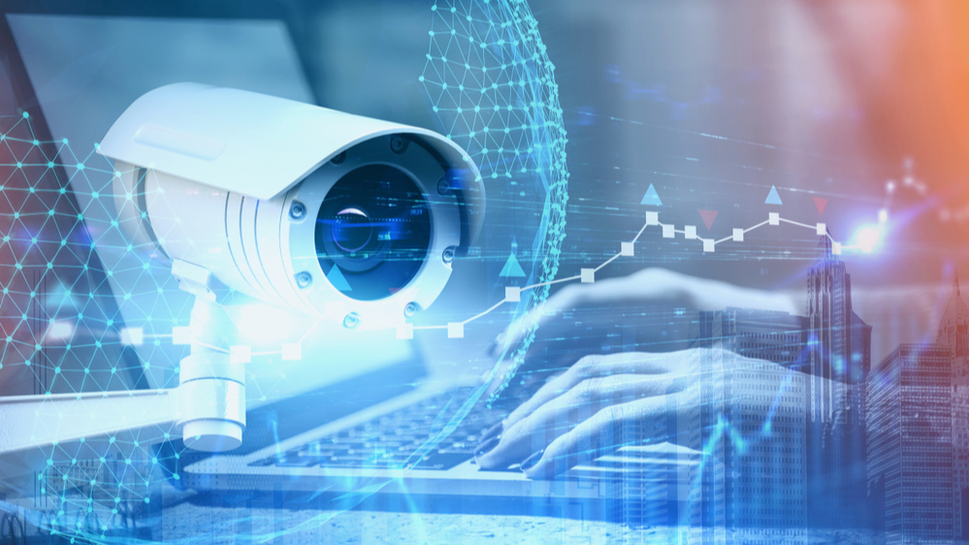Is the world's largest CCTV surveillance camera vendor going to be the next Huawei? Canada bans Hikvision amidst security fears
Canada boots out Chinese surveillance giant Hikvision

Sign up for breaking news, reviews, opinion, top tech deals, and more.
You are now subscribed
Your newsletter sign-up was successful
- Geopolitics, not just technology, is quietly rewriting who can sell cameras in Western markets
- Hikvision says it’s unfair, but the shutdown shows trust is no longer automatic for Chinese firms
- Company denies wrongdoing, but surveillance fears are now enough to end entire business operations
Canada has ordered Chinese surveillance giant Hikvision to cease its operations in the country, citing national security concerns.
The ban follows a formal review conducted under the Investment Canada Act and marks a move against foreign technology firms.
"The government has determined that Hikvision Canada Inc.’s continued operations in Canada would be injurious to Canada’s national security," said Industry Minister Mélanie Joly.
International pressure and rising suspicion
Hikvision, one of the world’s largest producers of surveillance cameras, has operated in Canada since 2014.
However its expansive global reach and ties to state-linked projects in China have long drawn concern from Western countries.
Although the government has not made public the specific reasons behind its decision, it has stated intelligence and security assessments played a central role.
This silence is likely to fuel speculation, much like in previous crackdowns on Huawei, where classified intelligence was used to justify broad commercial restrictions.
Sign up to the TechRadar Pro newsletter to get all the top news, opinion, features and guidance your business needs to succeed!
The comparison to Huawei is not unwarranted. Hikvision now finds itself under the same kind of scrutiny that led to Huawei’s ejection from 5G infrastructure projects across the Five Eyes nations.
The US, UK, and Australia have all already taken measures against Hikvision, particularly over claims its cameras have been used to surveil Uyghur Muslims in China’s Xinjiang region, allegations that Beijing denies.
The FBI has also warned about malware targeting webcams, and the Western world often believes that Chinese IoT is arguably more dangerous than TikTok, which is considered spyware.
Unsurprisingly, Hikvision “strongly disagrees” with Canada's decision, saying, “We believe it lacks a factual basis, procedural fairness, and transparency,” the company claims the move appears “to be driven by the parent company’s country of origin.”
With geopolitical tensions continuing to define much of the West’s approach to Chinese firms, decisions like Canada’s risk being seen less as technology-based judgments and more as political posturing.
Hikvision claimed it cooperated fully with authorities and submitted all requested documents, but this did not alter the outcome.
It’s unclear how many public buildings in Canada still use Hikvision devices, but Joly has committed to reviewing and phasing out any remaining equipment.
“I strongly urge Canadians to take note of this decision and make their own decisions accordingly,” she warned.
The Canadian government appears to be focusing on surveillance risks, and this questions the trustworthiness of smart devices, like the webcams or parental control solutions.
As more homes and workplaces adopt smart cameras and monitoring tools, the line between convenience and intrusion becomes thinner.
If bans become more commonplace, vendors may need to prove more than just feature strength to remain competitive.
Whether you're selecting a home monitoring system or seeking the best antivirus software, the politics of hardware and software are becoming harder to ignore.
Via Economic Times
You might also like
- These are the best business smartphones right now
- We've also listed the best rugged laptops available
- Amazon has a million robots on its floors - close to outnumbering human workers

Efosa has been writing about technology for over 7 years, initially driven by curiosity but now fueled by a strong passion for the field. He holds both a Master's and a PhD in sciences, which provided him with a solid foundation in analytical thinking.
You must confirm your public display name before commenting
Please logout and then login again, you will then be prompted to enter your display name.